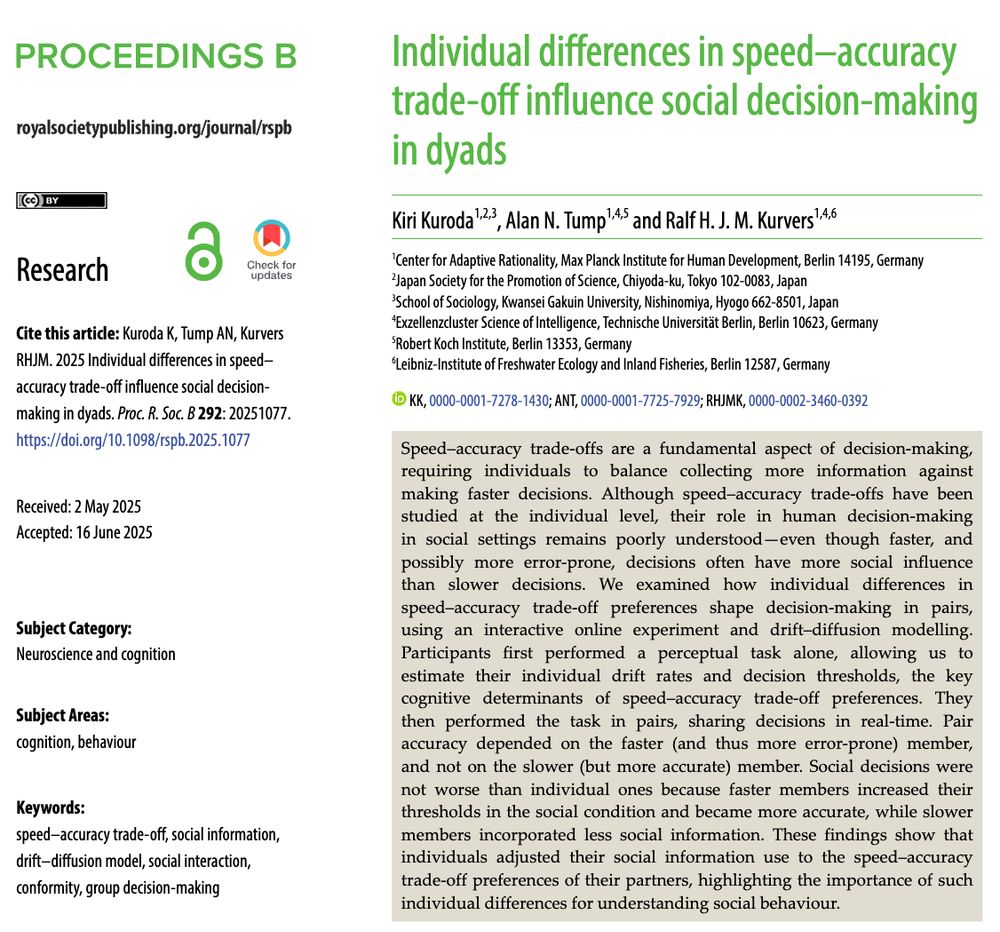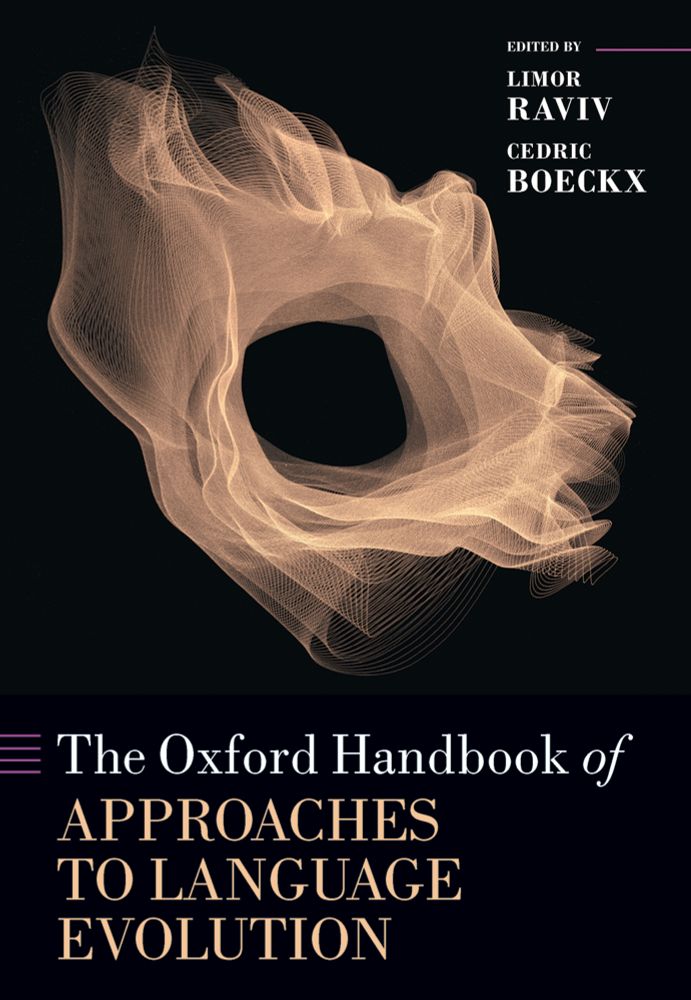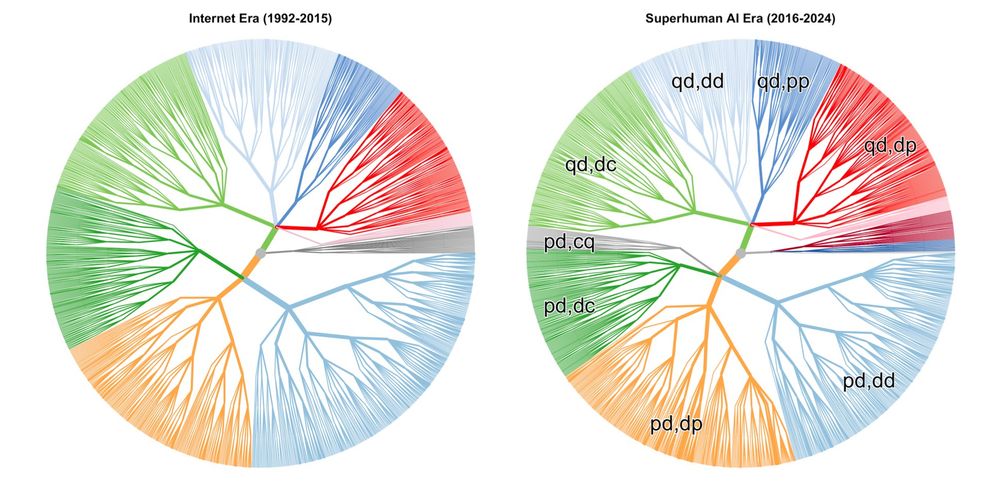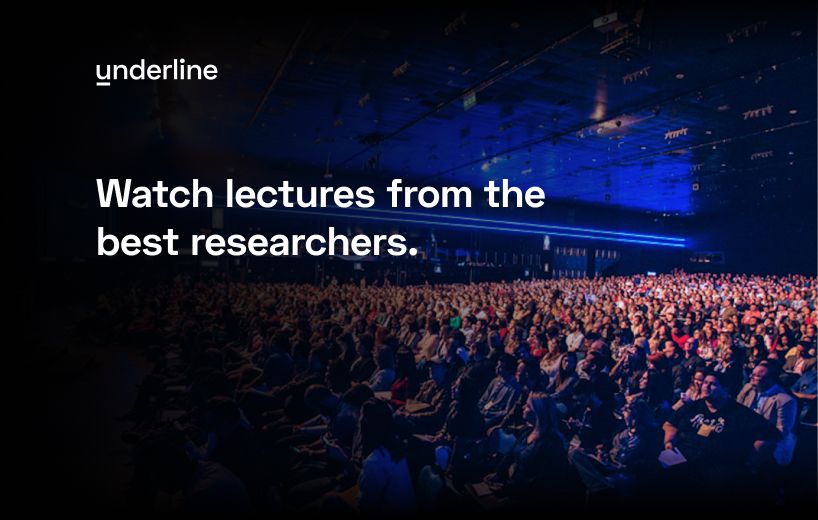
【🚨ACE Seminar Alert🚨】We're excited to have Dr Quentin Atkinson at University of Auckland on Tuesday 18 Nov. at 7pm in Tokyo (6pm in Singapore/11am in Berlin)!
You can sign up for the mailing list to get the zoom link by sending a blank email to ace-seminar+subscribe@googlegroups.com
21.10.2025 04:56 — 👍 7 🔁 4 💬 0 📌 1

Abstract: Speed–accuracy trade-offs are a fundamental aspect of decision-making, requiring individuals to balance collecting more information against making faster decisions. Although speed–accuracy trade-offs have been studied at the individual level, their role in human decision-making in social settings remains poorly understood—even though faster, and possibly more error-prone, decisions often have more social influence than slower decisions. We examined how individual differences in speed–accuracy trade-off preferences shape decision-making in pairs, using an interactive online experiment and drift–diffusion modelling. Participants first performed a perceptual task alone, allowing us to estimate their individual drift rates and decision thresholds, the key cognitive determinants of speed–accuracy trade-off preferences. They then performed the task in pairs, sharing decisions in real-time. Pair accuracy depended on the faster (and thus more error-prone) member, and not on the slower (but more accurate) member. Social decisions were not worse than individual ones because faster members increased their thresholds in the social condition and became more accurate, while slower members incorporated less social information. These findings show that individuals adjusted their social information use to the speed–accuracy trade-off preferences of their partners, highlighting the importance of such individual differences for understanding social behaviour.
"Individual differences in speed–accuracy trade-off influence social decision-making in dyads"
🚨Our paper has been published in Proceedings of the Royal Society B doi.org/10.1098/rspb...
w/ Alan Tump @alantump.bsky.social, Ralf Kurvers @ralfkurvers.bsky.social
@royalsocietypublishing.org
1/ 🧵👇
16.07.2025 09:34 — 👍 33 🔁 11 💬 2 📌 0

`
Towards a More Inclusive and Culturally Diversified Cognitive Science
Cognitive science is an interdisciplinary field that seeks to understand the nature and mechanisms of intelligence—whether biologi...
📣 Calling early-career cognitive scientists in the Asia-Pacific!
The CogSci Asia-Pacific Meetup Kickoff is coming:
📍 Dec 6–7, 2025 | Tokyo
🌱 Retreat-style event, community building, and cross-cultural exchange.
Details: sites.google.com/view/cogsci-...
#CogSci2025 #CognitiveScience
30.06.2025 12:47 — 👍 7 🔁 4 💬 0 📌 2

Title:
Motor–environment exploration in the human developmental niche
Absract:
In real behavioral ecologies, adaptive learning requires simultaneous exploration of both motor control and environmental task structure ("world model"), each presenting its own form of open-ended search complexity. We know much about each of these learning domains, but relatively little about their joint exploration space. I propose that this dual motor–environment exploration is crucial for understanding the human evolutionary niche. Human agency prolifically shapes environments that in turn shape our learning trajectories, presumably yielding a reciprocal (niche-constructive) feedback loop that couples mental structures to environmental structures and vice versa. Dual motor–environment exploration helps illuminate the explore–exploit landscape of this deeply collective, near-eusocial epigenetic milieu. It also offers unique computational and teleological perspectives on phenomena like cultural learning, social cognition, and behavioral creativity – complementing the population-level stochastic mechanisms proposed by cultural evolutionary theories.
【🚨ACE Seminar Alert🚨】We're excited to have Dr Ryutaro @uchiyama.bsky.social joining from Singapore on Tuesday 29th July at 7pm in Tokyo (6pm in Singapore/12am in Berlin)!
You can sign up for the mailing list to get the zoom link by sending a blank email to ace-seminar+subscribe@googlegroups.com
01.07.2025 10:00 — 👍 7 🔁 6 💬 1 📌 2

Book cover by Simon Kirby
Delighted to announce the publication of a collaborative effort, co-led by @limorraviv.bsky.social @mpi-nl.bsky.social, showcasing the ways in which researchers have made language evolution an empirical issue: A handbook of experimental approaches to the fascinating problem of language evolution 🧪
27.05.2025 05:56 — 👍 129 🔁 48 💬 3 📌 3

decision trees in human play in the game of go before and after the arrival of superhuman AI, showing gradual change rather than revolutionary disruption
🚨 New preprint! 🚨
I looked at 400+ years of cumulative cultural evolution in the Game of Go from feudalism to superhuman AI. Did AlphaGo etc. completely disrupt human play? No! More like human-machine convergence, rather than revolution.
Check out these decision trees!
osf.io/preprints/ps...
09.04.2025 17:35 — 👍 60 🔁 25 💬 3 📌 2

And check out the lineup of world-leading guest lecturers! We are really excited and thrilled to welcome our new “COSMOnauts” in Tokyo! 🚀🌕
12.03.2025 12:23 — 👍 7 🔁 3 💬 1 📌 0
COSMOS
The Computational Summer school on Modeling Social and collective behavior (COSMOS)
🚀COSMOS is BACK!!!💫 The Computational School on Modeling Social and collective behavior (COSMOS) will take place in RIKEN, Tokyo, between 29 Sept - 3 Oct, organised by me and fantastic @thecharleywu.bsky.social ! Application deadline: 25th April. For more details see 👉️ cosmossummerschool.github.io
12.03.2025 12:10 — 👍 26 🔁 25 💬 1 📌 4

Statement in support of Stand Up For Science Day
Please see below for EHBEA's statement in solidarity with Stand Up For Science Day ✊
07.03.2025 11:00 — 👍 31 🔁 19 💬 0 📌 3

CES offers its full support to the Stand Up For Science rallies in the U.S. on March 7 2025.
07.03.2025 11:15 — 👍 45 🔁 23 💬 1 📌 3
We are excited to advertise the Asian Cultural Evolution (ACE) seminar series! It's organized by Kenji Itao, Xinyue Pan & Wataru Toyokawa, and seminars will take place on the third Tuesday of odd-numbered months at 19:00 JST (18:00 Perth/Singapore/Beijing, 19:00 Tokyo/Seoul, 20:00 Sydney).
04.03.2025 09:44 — 👍 20 🔁 12 💬 1 📌 2

Watch lectures from the best researchers.
On-demand video platform giving you access to lectures from conferences worldwide.
For those who missed the @culturalevolsoc.bsky.social conference in Durham last September, the recorded talks are now freely available to watch here:
underline.io/events/456/l...
12.02.2025 09:32 — 👍 45 🔁 35 💬 3 📌 0

Alberto Acerbi
Website: acerbialberto.com
"Cultural evolution in the digital age" (OUP): bit.ly/2McstmR
"Individual-based models of cultural evolution. A step-by-step guide using R" (Routledge): bit.ly/3MQBjT4
(Free online version: acerbialberto.com/IBM-cultevo/)
Substack (free - in italiano): bit.ly/3lDERMq
08.02.2025 12:26 — 👍 17 🔁 5 💬 0 📌 0
More about me
🔗 [ResearchMap] researchmap.jp/seiyanakata?...
🔗 [ORCID] orcid.org/0000-0003-27...
🔗 [Website] sites.google.com/view/seiyana...
30.01.2025 01:35 — 👍 0 🔁 0 💬 0 📌 0
🌿 Hello, Bluesky! I'm Seiya Nakata, a postdoctoral researcher at the University of Tokyo. I study social learning, interaction, and the cultural evolution of technology and language using lab experiments (adults & children) and agent-based modeling.
Looking forward to connecting! 🚀
30.01.2025 01:35 — 👍 6 🔁 1 💬 1 📌 0
Director, Centre for the Sciences of Place & Memory, Stirling Uni, Scotland. Skill, memory, embodied cognition, philosophy, cognitive history, cricket, music, collaboration, wayfinding. Leverhulme International Prof: johnsutton.net & placememory.net
ICREA Research Professor. Evolution, Genetics, Neuroscience, Linguistic Cognition
The 37th annual Human Behavior and Evolution Society (HBES) conference will take place at the UM6P Rabat Campus - Morocco.
This year’s Cultural Evolution Society (CES) Conference 2026 will be held at UM6P Rabat Campus - Morocco.
Assistant Professor @uarizona; macro-evolution, data science, and some ecology; Lab website: https://datadiversitylab.github.io/; Blog: https://ghost.cromanpa.synology.me/
Postdoc at @ki.se
Studying neurocognitive aspect of culture and social learning
contact: alexandre.bluet@gmail.com
Postdoc at RIKEN (Japan), exploring human history with evolutionary models.
Focus: universal anthropology, cultural evolution, statistical physics, and complex systems theory.
https://scholar.google.com/citations?user=yKxFW-IAAAAJ&hl=en
Hello 🙌 I’m a second-year PhD student at Nagoya University, interested in #iconicity, #ideophones, #soundsymbolism, and #multimodality. Nice to meet you all 🥳
上田皐介 / personality and social psychology
Phil of tech/science, cultural/tech evo, distributed cognition, and interdisciplinary integration. Associate professor at UM6P-FGSES.
https://mcharbonneau.com/
Head of Molecular Psychiatry and Neurodegeneration Laboratory at Heinrich Heine University of Düsseldorf, Germany. Transmission and co-evolution mechanisms for brain function from the molecular to the individual/organismal level.
Post-doc at NYU Abu Dhabi. A sociological/social-cultural psychologist who studies hierarchy, power, and a bit of methodology
Explore groundbreaking news and research from PNAS, one of the world's most-cited scientific journals. Discover its sibling journal, @pnasnexus.org, both official journals of the National Academy of Sciences. Visit www.pnas.org for more info.
A Nature Portfolio journal bringing you research and commentary on all aspects of human behaviour.
https://www.nature.com/nathumbehav/
カラスがカアカア鳴けばカーコロジーだが、
マウスがチューチュー言ってもチューコロジーにはならない。
🧠 Experimental Psychologist | Animal Cognition & Perception
EiC, Japanese Journal of Animal Psychology | AE, Animal Cognition
🐁 Touchscreen Tasks | 📄 https://peerj.com/kazgoto/
Ph.D. student at UTokyo
Website: https://hidezosuganuma.net/
Evolutionary ecologist into evolutionary theory, eco-evolutionary dynamics, evolution of genetic architecture and Drag Race 🏳️🌈 (he/him); Asst Prof @ UNIL
https://lab-mullon.github.io/index.html
Exploring our world's diverse forms of mind—human, animal, machine—from diverse perspectives. A project of @divintelligence.bsky.social, @kensycoop.bsky.social, @laukas.bsky.social
www.disi.org/manyminds/
Scientist | Behavior | Cognition | Culture
Latest book: https://press.princeton.edu/books/paperback/9780691240770/the-human-evolutionary-transition
And Nature Photographer/biodiversity junkie:
www.jlind.se & www.instagram.com/jlindphoto










